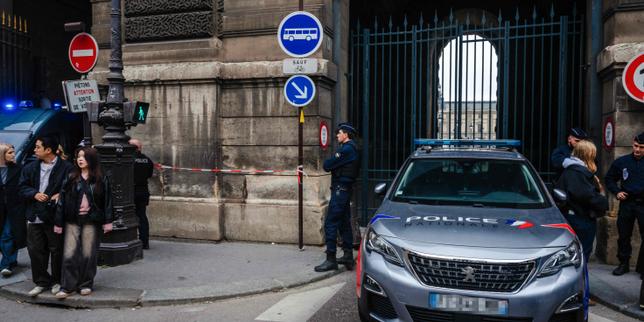Spectacular Louvre Heist Highlights Security Failures and Sparks International Concern
The October 19, 2025 robbery at the Louvre exposed critical security failures, leading to international criticism and closure of the museum while investigations and security reviews continue.
- • Four thieves stole eight priceless 19th-century crown jewels from the Louvre on October 19, 2025.
- • The museum remained closed for a second day as over sixty investigators pursued the case.
- • The Court of Auditors revealed persistent delays and deficiencies in security upgrades at the museum from 2019 to 2024.
- • Justice Minister Gérald Darmanin criticized authorities for security failures; speculation of internal complicity was raised by security experts.
- • International media emphasized the theft’s impact on France’s cultural heritage and security reputation.
Key details
On October 19, 2025, the Louvre Museum in Paris was the scene of a brazen robbery during which four thieves stole eight priceless 19th-century crown jewels, including a sapphire necklace that belonged to Queen Marie-Amélie and a diadem from Empress Eugénie. The theft took place shortly after the museum opened, and the audacity of the heist shocked France and the international community. The museum remained closed for a second day on October 20 as authorities launched an intensive investigation.
A high-level meeting was convened involving Interior Minister Laurent Nuñez, Culture Minister Rachida Dati, and Justice Minister Gérald Darmanin, who publicly acknowledged the failure of the authorities to prevent the robbery. Darmanin condemned the security breach, noting the criminals’ use of a freight elevator to access the jewels as a clear indication of serious security lapses.
A report by the Court of Auditors revealed that the Louvre had long suffered from inadequate security upgrades. Between 2019 and 2024, only a 15% increase in overall surveillance was achieved despite a 150% expansion of temporary exhibition spaces. Significant portions of the museum — notably 60% of the Sully wing and 75% of the Richelieu wing — lack video surveillance. The growing number of visitors has contributed to accelerated obsolescence of technical equipment, with insufficient investment to keep pace. The fire protection system upgrade, started in 2010, remains incomplete as of 2024.
Attorney Thibault de Montbrial, president of the Centre de Réflexion sur la Sécurité Intérieure, described the thieves as professionals exploiting known security weaknesses and suggested possible internal complicity, although without concrete evidence. The international press widely reacted with a mix of astonishment and humor; BBC highlighted the theft as a major security failure severely damaging France’s image, while The Sun called it one of the most audacious recent raids.
The Louvre’s communication about the closure has faced criticism from frustrated tourists who found the museum unexpectedly closed despite initial announcements of reopening. Many visitors lamented the poor information and the missed opportunity to see the museum’s treasures.
Approximately sixty investigators from various police units are now dedicated to the case, working urgently to recover the stolen cultural heritage artifacts. Meanwhile, the Louvre remains closed as security reviews continue and efforts intensify to safeguard France’s most iconic artworks and royal jewels.
This article was translated and synthesized from French sources, providing English-speaking readers with local perspectives.
Source articles (5)
Source comparison
Latest news
France Returns the Djidji Ayôkwé Talking Drum to Côte d'Ivoire After Over a Century
Record 37 Days of Rain Triggers Ongoing Severe Flooding in Western France
Political Divisions and Social Tensions Intensify Following Quentin Deranque’s Death in Lyon
French Economy Minister Calls for Full Insurance Industry Mobilization Amid Devastating Storm Floods
France Boosts Social and Solidarity Economy with New Tools and Potential Tax Reforms in 2026
Saint-Nazaire Mayor Condemns Vandalism of Two Political Offices as Attack on Democracy
The top news stories in France
Delivered straight to your inbox each morning.


